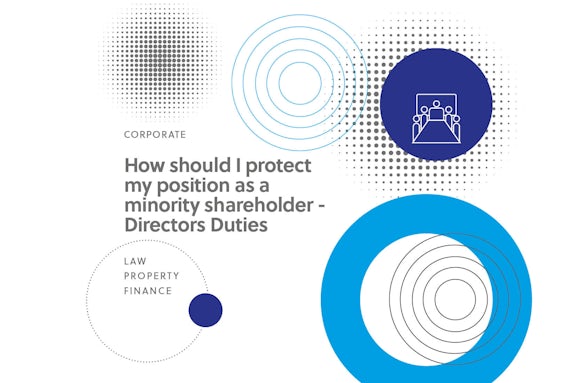DIRECTORS DUTIES TOWARDS SHAREHOLDERS
Directors and shareholders (and the fact they are separate) are two of the key considerations in company law. This blog is going to build on the last one, looking more specifically at our fictional company, X Limited.
As a brief refresher, W is the majority shareholder, holding 51 shares, and Y and Z hold 18 and 31 respectively. This means they have a different level of influence on the approval of certain decisions relating to the company, with W able to pass ‘ordinary resolutions’ alone, but requiring Z’s support to pass ‘special resolutions’.
Directors have a number of general duties (a duty to act in good faith, for a proper purpose and in their best interests, amongst others), which they owe to the company they are a director of. This topic is explored more fully by my colleague Kim in her recent series of blogs. Do the directors owe any duties towards the shareholders?
In our example, Y and W and directors of the company (as well as being shareholders) and Z is just a shareholder. Do Y and W have any specific duties towards Z? Well, possibly. Strictly, directors only owe their statutory duties to the company, but the courts have held that where there is a ‘special factual relationship’ between the directors and the shareholders of a company, some duties will exist and additional duties will be owed towards the shareholders.
One of our specialties is acting for family businesses and X Limited, a family business, provides a perfect worked example of a situation where such a ‘special factual relationship’ may exist. This is because the cases where a special factual relationship has been found to exist mostly concern companies which are small. This is often related to a family or personal relationship between the parties, and where, in almost all cases, there is a particular transaction involved in which directors are dealing with the shareholders.
There are points to note as regards the special factual relationship test. These are:
- the fact that a director is acquiring shares from a shareholder is not , alone, enough to create a fiduciary duty between the parties;
- a director having a superior knowledge of the company’s affairs, or that his or her actions have the potential to affect the shareholders, does not create ‘special circumstances’, or give rise to a ‘special relationship’ between directors and shareholders.
The presence of these features will be likely be present in a “special factual relationship”. However, what these points demonstrate is that it is a high bar to prove that a “special factual relationship” exists between directors and shareholders.
Read Part 1 of the ‘How Should I Protect My Position as A Minority Shareholder’ series here.
For more information on the above please contact Oliver Craig, Trainee Solicitor, email OCraig@gilsongray.co.uk / +44 (0)141 286 2017 or Craig Darling, Partner – Corporate Law, email cdarling@gilsongray.co.uk/ +44 (0)141 530 2044







